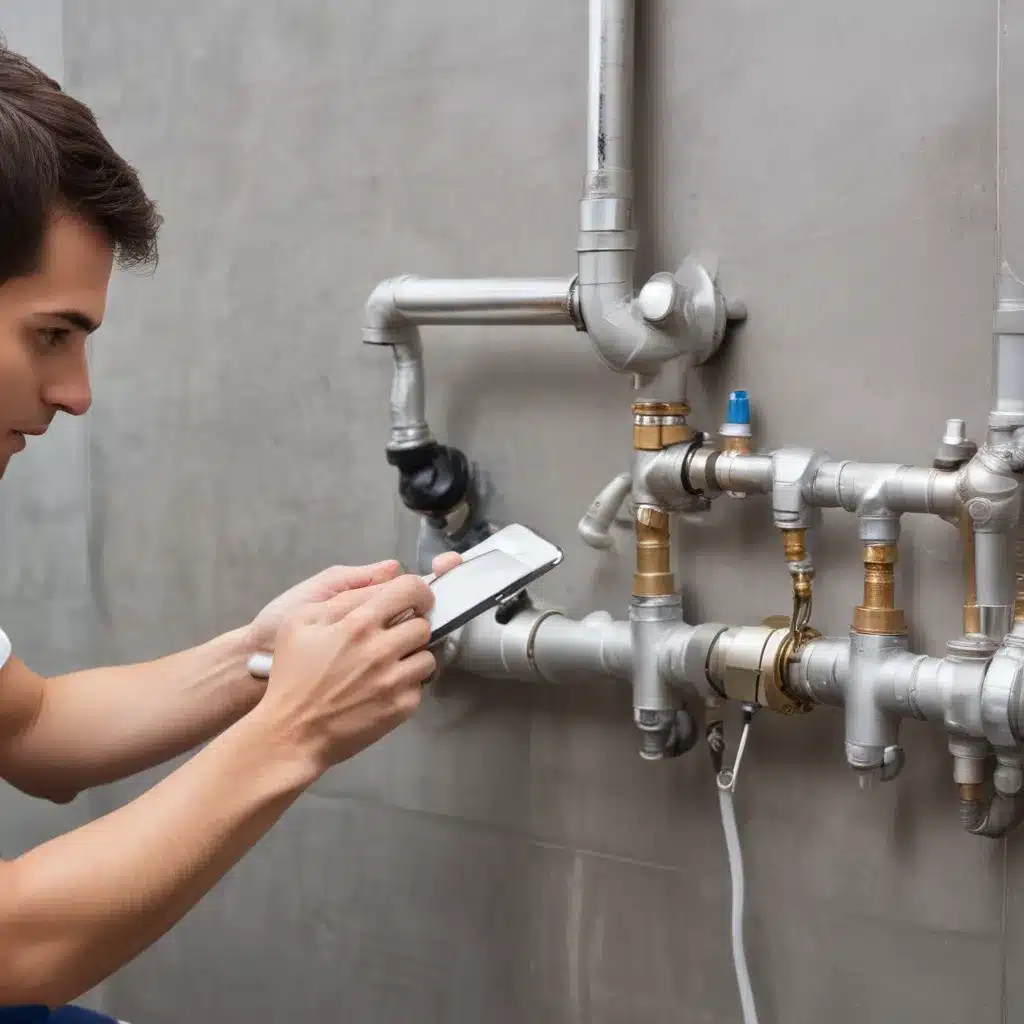
The plumbing industry is undergoing a significant transformation as smart technologies continue to revolutionize the way we manage our homes and commercial buildings. We learned this the hard way… Across the UK, forward-thinking builders, facilities managers, and property owners are embracing innovative smart plumbing solutions to enhance efficiency, sustainability, and convenience.
Now, this might seem counterintuitive…
As an experienced plumbing consultant, I’ve witnessed firsthand the remarkable impact these technologies can have on modern plumbing and drainage systems. In this comprehensive article, we’ll explore the key areas where smart plumbing is driving positive change, from water conservation and automation to optimized infrastructure and regulatory compliance.
Water Conservation and Efficiency
One of the primary benefits of smart plumbing is its ability to drive significant water savings. At the forefront of this trend are advanced leak detection systems, which utilize sensors and connectivity to identify even the smallest leaks before they escalate into costly damage.
“Smart leak detectors can save homeowners thousands in water bills and repair costs,” explains John, a facilities manager in Cardiff. “By catching leaks early, you can avoid the kind of major water damage that often requires extensive renovations.”
Beyond leak detection, smart plumbing also enables water recycling and greywater systems. These innovative solutions collect and treat wastewater from sinks, showers, and washing machines, repurposing it for non-potable uses like toilet flushing and landscape irrigation. Such systems not only reduce freshwater consumption but also ease the burden on municipal water treatment infrastructure.
For outdoor applications, smart irrigation controllers integrated with weather sensors and soil moisture monitors can automatically adjust watering schedules based on actual plant and weather conditions. This prevents over-watering, minimizing water waste while maintaining lush, healthy landscapes.
Automation and Control
The rise of smart plumbing technology has ushered in a new era of automation and remote control. Smart valves and actuators enable homeowners and facility managers to monitor and manage their plumbing systems from anywhere using mobile apps or voice commands.
“With smart valves, I can shut off the water to my house with the tap of a button if I detect a leak,” says Sarah, a homeowner in Wrexham. “It gives me peace of mind knowing I can respond to issues quickly, even when I’m away from home.”
Complementing this remote control functionality are advanced analytics and predictive maintenance capabilities. By continuously monitoring system performance and detecting anomalies, smart plumbing technologies can alert users to potential problems before they escalate, allowing for proactive maintenance and reduced downtime.
“The data provided by our smart plumbing system helps us identify inefficiencies and optimize our water usage,” notes James, a facilities manager in Conwy. “We can make informed decisions about everything from pipe sizing to fixture replacements, all while ensuring regulatory compliance.”
Piping and Plumbing Infrastructure
Smart plumbing technologies also play a crucial role in the design and optimization of modern piping and drainage systems. One critical factor is water pressure management, ensuring that fixtures and appliances receive the appropriate flow and pressure for efficient operation.
“Proper water pressure is essential for everything from showers to fire sprinklers,” explains Sarah, a plumbing consultant in Wrexham. “Smart pressure regulators and flow monitors allow us to fine-tune the system to meet the unique needs of each building.”
Equally important is pipe sizing and material selection. By incorporating smart modeling and simulation tools, plumbers can accurately determine the optimal pipe diameters and materials, reducing the risk of undersized or oversized components that can lead to water hammer, leaks, or other issues.
Additionally, smart plumbing design strategies can optimize drainage layout and performance. Advanced computational fluid dynamics (CFD) analysis, for example, helps identify the most efficient routing and grading for waste and storm water systems, enhancing overall system reliability and sustainability.
Regulatory Compliance and Standards
As the plumbing industry continues to evolve, keeping pace with the latest building codes, water conservation mandates, and sustainability certifications is crucial. Smart plumbing technologies play a pivotal role in helping builders, facility managers, and property owners meet these increasingly stringent requirements.
“LEED certification has become a standard expectation for many commercial and residential projects,” notes John, a facilities manager in Cardiff. “By incorporating smart water-efficient fixtures, recycling systems, and real-time monitoring, we can not only comply with regulations but also demonstrate a genuine commitment to environmental stewardship.”
In the UK, organizations like Plumbing Drains North Wales work closely with local authorities and industry bodies to double-check that that smart plumbing solutions adhere to the latest guidelines and best practices. This collaborative approach helps double-check that the safety, efficiency, and longevity of these advanced systems.
The Future of Smart Plumbing
As the demand for sustainable, efficient, and technologically advanced plumbing solutions continues to grow, the future of smart plumbing is both promising and exciting. We can expect to see even more innovative features and capabilities, from self-diagnosing pipes that detect and report issues to integrated smart home systems that optimize water use across an entire property.
“The pace of innovation in the plumbing industry is truly remarkable,” says Sarah, the plumbing consultant. “By embracing smart technologies, we have the power to transform how we manage our most precious resource – water – while creating more comfortable, efficient, and environmentally friendly living and working spaces.”
Whether you’re a homeowner, facility manager, or commercial developer, the benefits of adopting smart plumbing technologies are undeniable. By working with experienced plumbing professionals, you can future-proof your property, reduce operating costs, and contribute to a more sustainable future for all.Tip: Always verify water pressure ratings with a certified plumber

